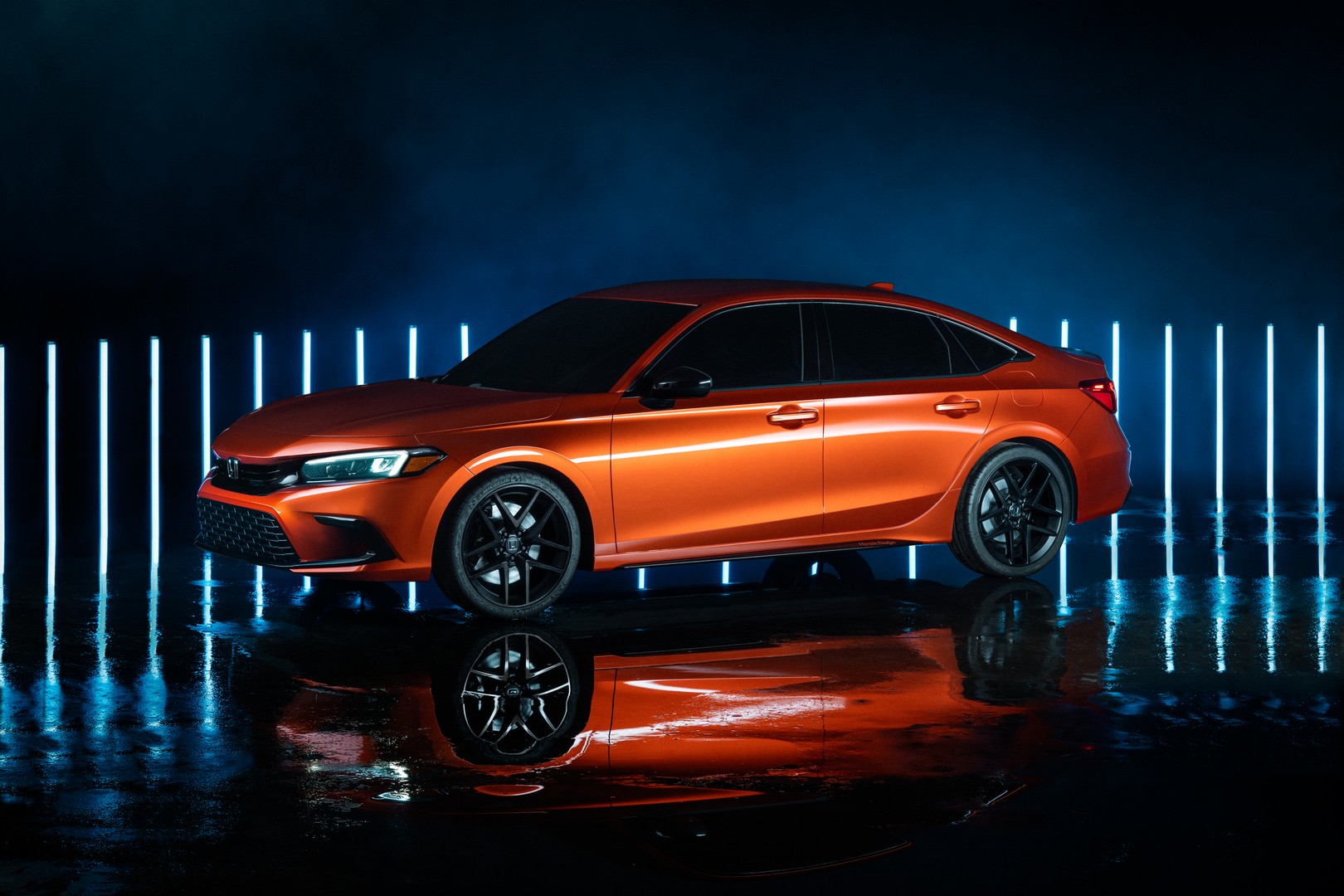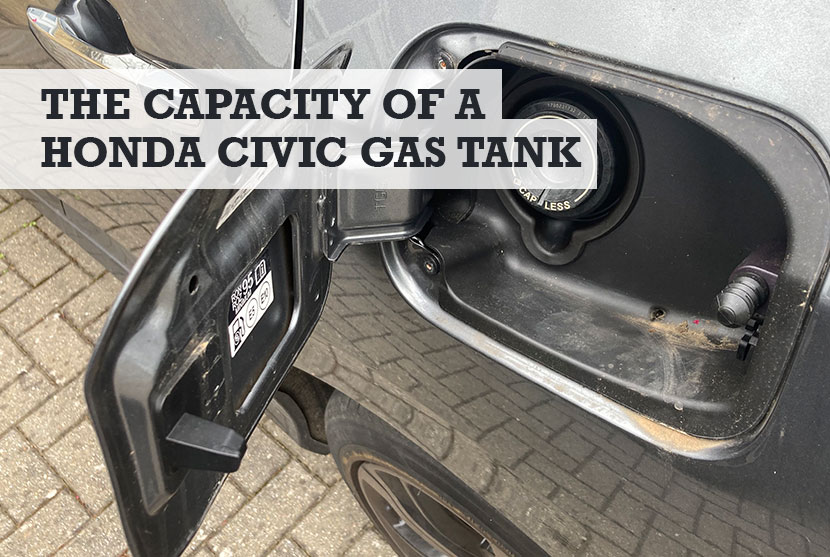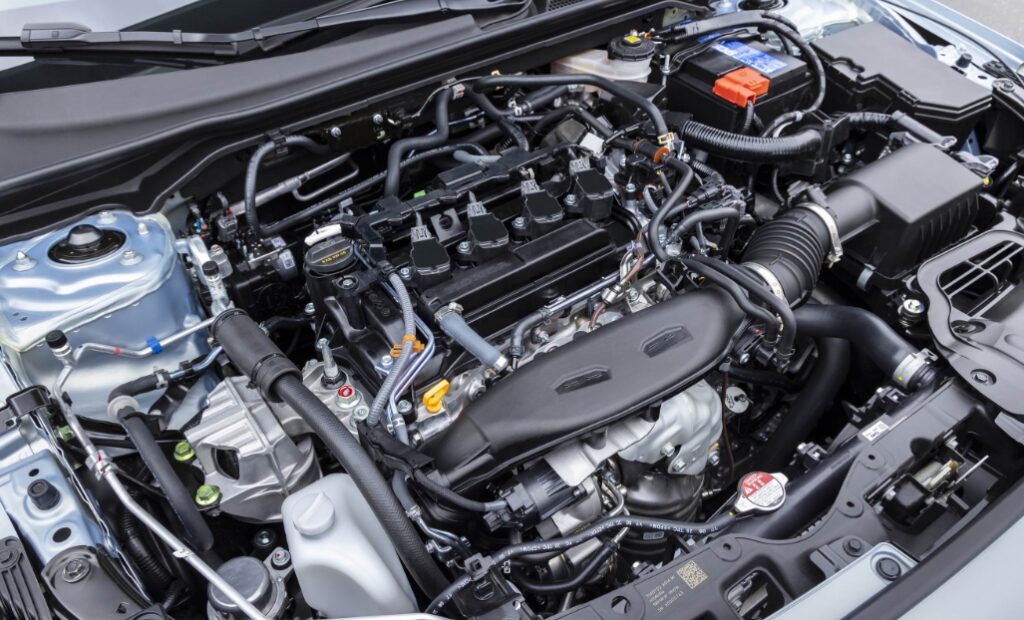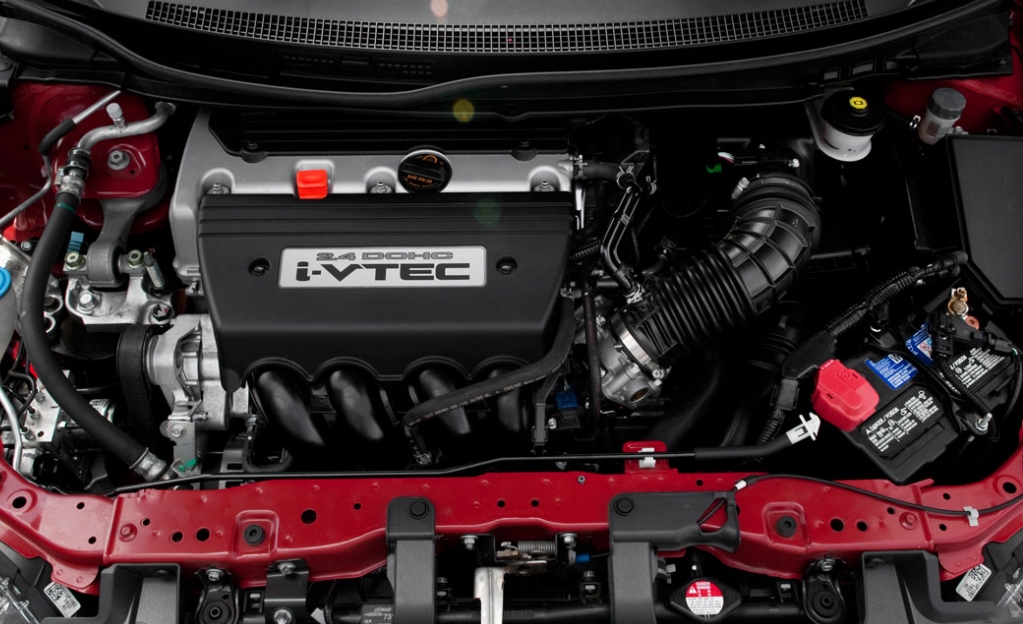The 2025 Honda Civic: Fuel Tank Capacity And Efficiency In Focus
By admin / September 1, 2024 / No Comments / 2025

The 2025 Honda Civic: Fuel Tank Capacity and Efficiency in Focus
The Honda Civic, a perennial favorite in the compact car segment, has consistently delivered a blend of affordability, reliability, and efficiency. As we approach the 2025 model year, anticipation is high for the latest iteration of this popular vehicle. While official details remain under wraps, industry whispers and previous trends suggest a compelling package, including a focus on fuel efficiency and potentially, a larger fuel tank capacity.
This article delves into the anticipated fuel tank capacity of the 2025 Honda Civic, exploring the factors influencing this crucial aspect and its impact on the driving experience. We’ll also examine the broader context of fuel efficiency in the modern automotive landscape and how Honda is likely to position the Civic within this evolving paradigm.
The Fuel Tank: A Crucial Component
The fuel tank, a seemingly mundane component, plays a pivotal role in a car’s overall practicality. Its capacity directly determines how far you can travel between refueling stops, impacting your convenience and potentially influencing your decision-making process when choosing a vehicle.
For the 2025 Honda Civic, the fuel tank capacity is expected to be a key consideration. While Honda has not yet released official specifications, several factors suggest a potential increase in capacity:
- Growing Demand for Range: Consumers are increasingly seeking vehicles with greater driving range, particularly as fuel prices fluctuate and concerns about fuel economy persist. A larger fuel tank addresses this demand, allowing drivers to cover more distance without needing to refuel as frequently.
- Competition in the Segment: The compact car segment is fiercely competitive, with rivals like the Toyota Corolla and Mazda3 offering impressive fuel efficiency and generous fuel tank capacities. Honda will likely need to match or exceed these offerings to remain competitive.
- Shifting Consumer Preferences: The modern driver is increasingly focused on practicality and convenience. A larger fuel tank aligns with this trend, providing peace of mind and reducing the frequency of refueling stops.
Fuel Efficiency: A Key Differentiator
While fuel tank capacity influences range, fuel efficiency directly impacts how much fuel you consume per mile. This factor is critical in today’s environment, where rising fuel prices and environmental concerns are paramount.
Honda has a strong reputation for producing fuel-efficient vehicles, and the 2025 Civic is likely to continue this tradition. Several factors contribute to its anticipated fuel efficiency:
- Engine Technology: Honda is known for its advanced engine technology, including direct injection, variable valve timing, and cylinder deactivation. These innovations optimize fuel combustion, reducing fuel consumption without sacrificing performance.
- Aerodynamics: The Civic’s design incorporates aerodynamic features like a streamlined body shape and spoilers, which reduce drag and improve fuel efficiency.
- Lightweight Materials: Utilizing lightweight materials like aluminum and high-strength steel in the Civic’s construction reduces overall weight, improving fuel economy.
- Hybrid and Electric Options: Honda is increasingly investing in hybrid and electric powertrains, offering more sustainable and fuel-efficient options for consumers. While the 2025 Civic may not offer a fully electric variant, a hybrid option could be on the horizon, further enhancing fuel efficiency.
The 2025 Honda Civic: A Balancing Act
The 2025 Honda Civic faces the challenge of balancing fuel tank capacity and fuel efficiency. A larger tank enhances range, but it also increases the vehicle’s weight, potentially impacting fuel economy. Honda will need to strike a delicate balance to optimize both aspects, catering to the demands of a discerning customer base.
Several factors will influence the final outcome:
- Fuel Tank Design: Honda engineers will likely focus on designing a fuel tank that maximizes capacity while minimizing weight and impact on fuel efficiency. Advanced materials and optimized tank shapes could be employed to achieve this balance.
- Engine Tuning: The engine’s power output and fuel consumption will be carefully calibrated to ensure optimal performance and fuel efficiency.
- Transmission Optimization: The transmission will be designed to maximize fuel economy by selecting the most efficient gear ratios for different driving conditions.
The Future of Fuel Efficiency: A Broader Perspective
The 2025 Honda Civic is a testament to the ongoing evolution of the automotive landscape. Fuel efficiency is no longer just a technical specification; it has become a crucial factor in consumer decision-making and environmental sustainability.
Several trends are shaping the future of fuel efficiency:
- Government Regulations: Governments worldwide are enacting stricter fuel economy standards, pushing automakers to develop increasingly efficient vehicles.
- Consumer Demand: Consumers are becoming more environmentally conscious and are increasingly demanding fuel-efficient vehicles.
- Technological Advancements: Advances in engine technology, electrification, and alternative fuels are driving down fuel consumption and emissions.
Conclusion: A Glimpse into the Future
The 2025 Honda Civic, with its anticipated larger fuel tank capacity and continued focus on fuel efficiency, represents a crucial step in this evolving landscape. By striking a balance between practicality and sustainability, the Civic is poised to remain a leading contender in the compact car segment.
While the exact fuel tank capacity and fuel efficiency figures remain to be officially revealed, the trends and factors discussed in this article provide a valuable insight into Honda’s strategy for the 2025 Civic. As we approach the release date, anticipation grows for this exciting new model, which promises to deliver a compelling blend of performance, efficiency, and practicality.
The 2025 Honda Civic is not just a car; it is a symbol of the automotive industry’s commitment to innovation, efficiency, and a more sustainable future.







